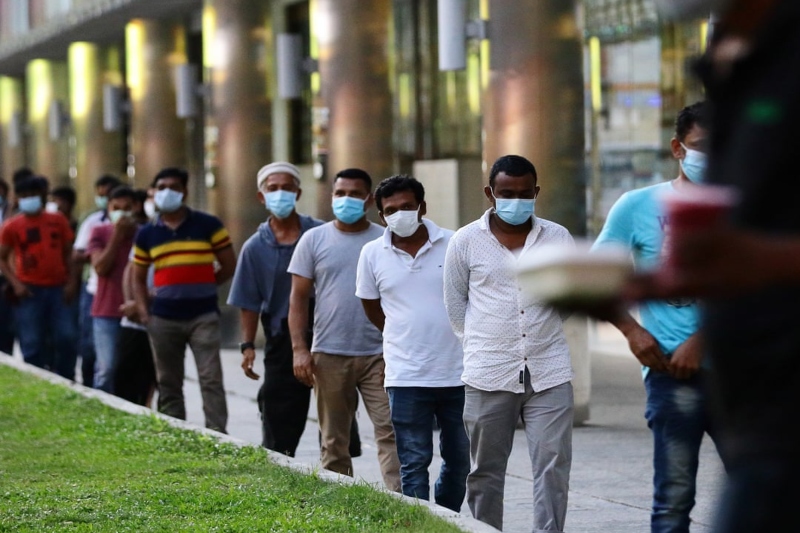
group of migrant workers trained to spot distress & anxiety signs in fellow migrants
Last updated on September 21st, 2023 at 11:42 am
 Singapore – Hasan Samim, a migrant worker in Singapore noticed last December that one of his co-workers wasn’t his usual self and had suddenly become quiet and stayed within himself. “For almost three years, he didn’t go back home. So his father recently passed away, but he can’t go back as well, so he was mentally fully depressed,” said Hasan, a Bangladeshi electrical and instrumental technician with Rotary Engineering. He was also worried that if he went now, he wouldn’t be able to return to Singapore for work. But he didn’t know how to communicate this to his employer due to less proficiency in English. After Hasan stepped in to speak to his friend’s supervisor, the employer was able to arrange a two month leave for his friend to visit his family back in Bangladesh.
Singapore – Hasan Samim, a migrant worker in Singapore noticed last December that one of his co-workers wasn’t his usual self and had suddenly become quiet and stayed within himself. “For almost three years, he didn’t go back home. So his father recently passed away, but he can’t go back as well, so he was mentally fully depressed,” said Hasan, a Bangladeshi electrical and instrumental technician with Rotary Engineering. He was also worried that if he went now, he wouldn’t be able to return to Singapore for work. But he didn’t know how to communicate this to his employer due to less proficiency in English. After Hasan stepped in to speak to his friend’s supervisor, the employer was able to arrange a two month leave for his friend to visit his family back in Bangladesh.
Mr. Hasan is now working as a peer leader after he was trained in December by HealthServe. His work includes spotting such signs of distress in his colleagues as well as co-occupants in dormitories so as to help them in any way possible.
Related Posts
Hasan shares that it is more impactful for him to communicate with his peers in same language for understanding at “the same level”. “So if I asked him in my (our) own language, maybe he can explain everything, understand everything. That is the difference,” he explained.
HealthServe initiative is a part of the Manpower Ministry’s Project Dawn that includes variety of mental health support measures to offer help to migrant workers in Singapore. The ministry’s Assurance, Care and Engagement (ACE) team is working along with the Institute of Mental Health and also non-governmental organizations Migrant Workers’ Centre and HealthServe on this.
Hasan was taught, as a part of his training, to identify signs of stress among peers and also how to approach them and listen effectively. His phone number is now circulated at Singapore’s dormitories. “Previously these symptoms are in front of me, but I didn’t know how to help … So after I’m getting this training, I’m fully aware and I really understand what is the main problem,” Mr. Hasan told CNA in an interview.










